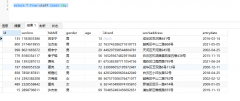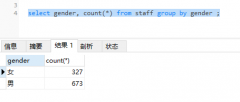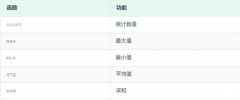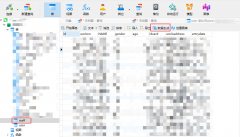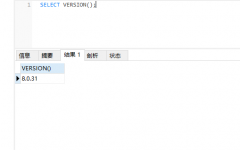How to implement the having clause in sqlite django ORM(如何在sqlite django ORM中实现have子句)
问题描述
我已经编写了 django sqlite orm 语法来检索特定的记录集:
I've written django sqlite orm syntax to retrieve particular set of records:
from django.db.models.aggregates import Count
JobStatus.objects.filter(
status='PRF'
).values_list(
'job', flat=True
).order_by(
'job'
).aggregate(
Count(status)__gt=3
).distinct()
但它给了我一个错误,这个语法的 sql 对我来说很好.
But it gives me an error and the sql equivalent for this syntax works fine for me.
这是我的 sql 等价物.
This is my sql equivalent.
SELECT *
FROM tracker_jobstatus
WHERE status = 'PRF'
GROUP BY job_id
HAVING COUNT(status) > 3;
我得到的结果如下
+----+--------+--------+---------+---------------------+---------+
| id | job_id | status | comment | date_and_time | user_id |
+----+--------+--------+---------+---------------------+---------+
| 13 | 3 | PRF | | 2012-11-12 13:16:00 | 1 |
| 31 | 4 | PRF | | 2012-11-12 13:48:00 | 1 |
+----+--------+--------+---------+---------------------+---------+
我无法为此找到等效的 django sqlite.
I'm unable to find the django sqlite equivalent for this.
如果有人能提供帮助,我将不胜感激.
I will be very grateful if anyone can help.
推荐答案
我终于想通了.ORM 语法是这样的.
Finally I've managed to figure it out. The ORM syntax is something like this.
from django.db.models.aggregates import Count
JobStatus.objects.filter(
status='PRF'
).values_list(
'job', flat=True
).order_by(
'job'
).annotate(
count_status=Count('status')
).filter(
count_status__gt=1
).distinct()
这篇关于如何在sqlite django ORM中实现have子句的文章就介绍到这了,希望我们推荐的答案对大家有所帮助,也希望大家多多支持编程学习网!
本文标题为:如何在sqlite django ORM中实现have子句


基础教程推荐
- 带更新的 sqlite CTE 2022-01-01
- MySQL根据从其他列分组的值,对两列之间的值进行求和 2022-01-01
- 如何在 CakePHP 3 中实现 INSERT ON DUPLICATE KEY UPDATE aka upsert? 2021-01-01
- CHECKSUM 和 CHECKSUM_AGG:算法是什么? 2021-01-01
- while 在触发器内循环以遍历 sql 中表的所有列 2022-01-01
- ORA-01830:日期格式图片在转换整个输入字符串之前结束/选择日期查询的总和 2021-01-01
- 使用 VBS 和注册表来确定安装了哪个版本和 32 位 2021-01-01
- 从字符串 TSQL 中获取数字 2021-01-01
- 带有WHERE子句的LAG()函数 2022-01-01
- MySQL 5.7参照时间戳生成日期列 2022-01-01








